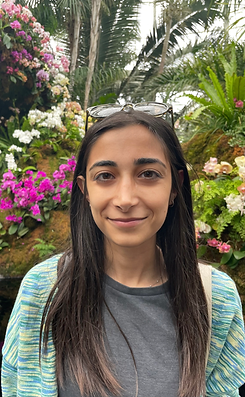

The LaFave Lab studies gene regulatory mechanisms that drive cancer evolution in lung adenocarcinoma
Research
Our lab uses state-of-the art epigenomic approaches to examine gene regulatory programs that drive cellular diversity in lung cancer progression. To do this, we use varied lung cancer modeling approaches to study chromatin biology with the overarching goal of better understanding and targeting mechanisms of lung cancer progression. We aim to understand broad questions in cancer biology including (i) How do aberrant chromatin-mediated gene regulatory programs arise and persist across lung cancer progression?, (ii) How does an altered epigenomic programs cooperate with somatic mutations to enhance cancer cell fitness?, and (iii) How does loss of normal tissue homeostatic gene programs lead to altered cell states in cancer?
Lung cancer modeling
Our lab focuses predominantly on the study of lung adenocarcinoma (LUAD), the most common type of non-small cell lung cancer. To study LUAD, we either use established or develop new murine models. In previous work, we have shown the chromatin states in a well-established model of LUAD (KRAS G12D mutant, p53 knockout; KP model) become increasingly heterogeneous over cancer progression. While these chromatin states exhibit vast heterogeneity, we identified reproducible chromatin-mediated gene programs that arise across tumor evolution associated with cell identity, inflammation, and progression towards metastasis. We continue to expand our toolkit to study early and late stages of lung cancer progression and will assess and perturb these chromatin states in murine and human organoid models, in genetically engineered mouse models (GEMMs), and in human patient samples.

Cellular plasticity

Because a hallmark of lung cancer is marked intratumoral heterogeneity, our work aims to understand the mechanisms by which transformed lung cells acquire the capacity to sample additional chromatin states. Normal cells require tightly coordinated gene regulatory programs to maintain the activity of genes required for specialized cellular function. However, these normal gene programs that maintain cellular identity become co-opted during cancer development. Our work seeks to understand how normal gene regulation in alveolar cells in the lung become decoupled upon oncogenic transformation and lead to emergent epigenomic plasticity. We seek to understand how aspects of this plasticity mimic processes from development (and how they differ). We have previously catalogued a number of transcription factors (TFs) important in varied stages of this process and aim to study perturbation of these regulators.
Spatial context
Our previous work has demonstrated the emergence of diverse cellular states, characterized by tumor intrinsic dysregulation of chromatin accessibility. We now seek to understand how inputs from the complex tumor microenvironment influence chromatin structure in cancer cells. We will use evolving epigenomic and spatial technologies to understand the local neighborhood of individual tumor cells and how these interactions map to previously identified chromatin states in tumor cells. We also aim to understand how cancer cells intermingle with other cancer cells, normal cells and the cells in the tumor microenvironment to re-shape the chromatin landscape in transformed and untransformed cells.

Epigenomic technologies

Our group seeks to use evolving epigenomic and spatial technologies to study cancer progression in LUAD. We have expertise using single-cell ATAC-sequencing to study chromatin biology in normal lung and cancer cells. We seek to use emergent multiomic strategies, like SHARE-seq, which allows for profiling of the epigenome and transcriptome in the same cell. In addition, we aim to use spatial strategies and computational approaches to study important regulators, such as transcription factors and chromatin-modifying proteins, in lung cancer progression. Our goal is to also publically share our datasets, tools, and code to facilitate open sharing in our research community.
Recent lab highlights


Funding
.png)
.png)